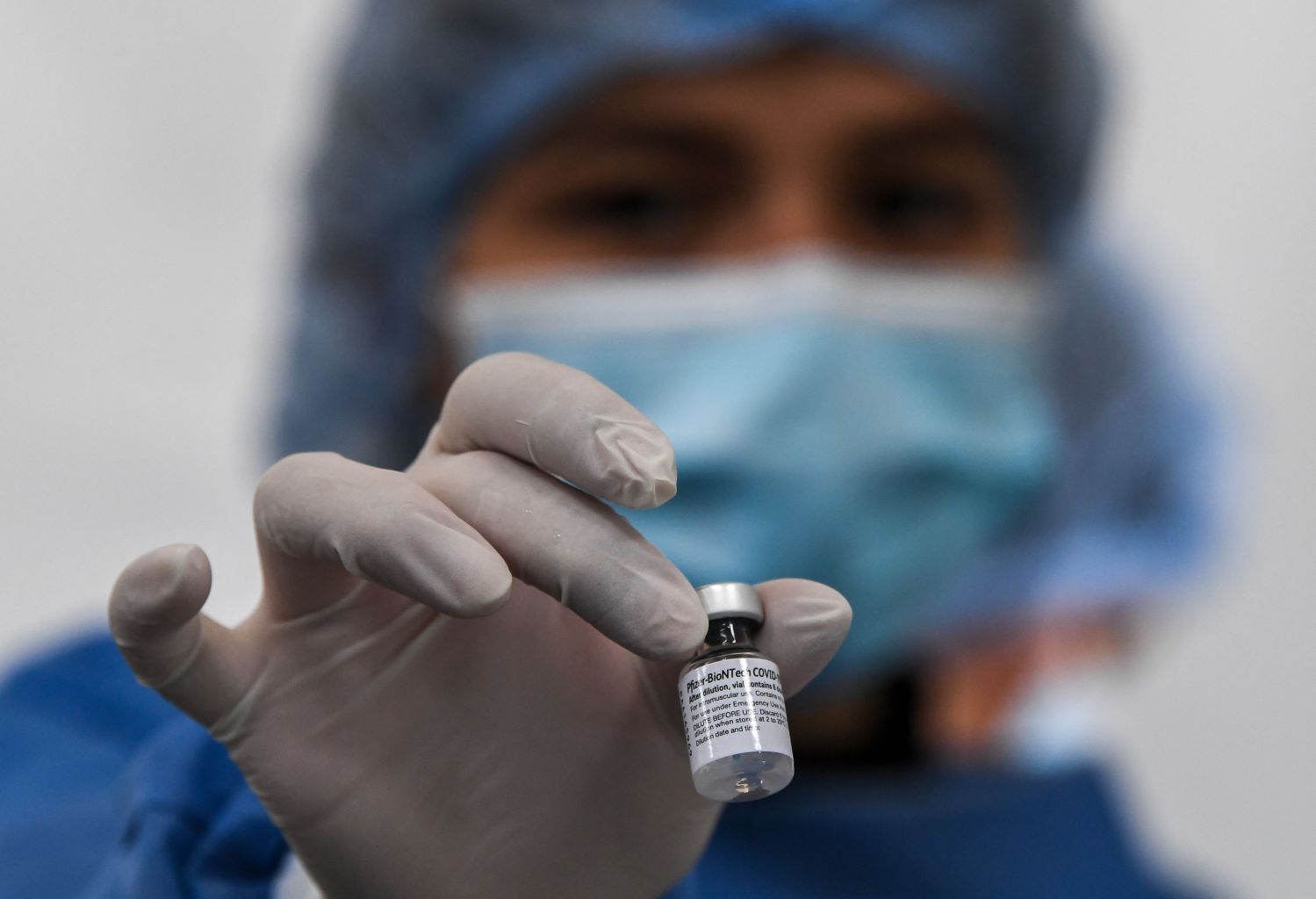People with full Covid-19 vaccination don't need booster for now, say US agencies - contrary to Pfizer’s stance
Sign up now: Get ST's newsletters delivered to your inbox

The CDC and FDA did not rule out the possibility of booster shots becoming necessary in future, saying that they would continue to review any new data.
PHOTO: AFP
WASHINGTON - People in America who are fully vaccinated against the coronavirus do not need booster shots at this time, US federal agencies said on Thursday (July 8), signalling a more conservative approach that diverged from vaccine developers Pfizer and BioNTech's plans to develop and roll out vaccine boosters.
The joint statement by the Centres for Disease Control and Prevention (CDC) and the Food and Drug Administration (FDA) came hours after Pfizer and BioNTech said data from Israel suggested that boosters will be needed six months or more from initial shots, due to the threat from coronavirus variants.
In a press release, Pfizer and BioNTech said that in the light of this, they were developing a booster dose of their Covid-19 vaccine and expected clinical studies to begin in August, pending regulatory approval.
But the CDC and FDA said that they had a "science-based, rigorous" process of considering whether - or when - a booster might be necessary, a decision that is not exclusively based on drugmakers' data.
"This process takes into account laboratory data, clinical trial data and cohort data - which can include data from specific pharmaceutical companies, but does not rely on those data exclusively," said the statement.
The agencies did not rule out the possibility of booster shots becoming necessary in future, saying that they would continue to review any new data as it became available.
"We are prepared for booster doses if and when the science demonstrates that they are needed," they said.
Citing data from Israel's Health Ministry published on Monday and their own findings, Pfizer and BioNTech said their vaccine's efficacy in preventing infection and symptomatic disease waned after six months post-vaccination. Efficacy in preventing serious illnesses remained high across the full six months.
"Based on the totality of the data... to date, Pfizer and BioNTech believe that a third dose may be beneficial to maintain the highest levels of protection," said the statement, adding that "a third dose may be needed within six to 12 months after full vaccination".
Pfizer's top scientist Mikael Dolsten told the Associated Press that the company's early data suggests that people's antibody levels jump five to 10 times after a third dose, compared with their second dose months earlier.
Thursday's statements highlighted the daylight between America's vaccine developers and federal authorities, which are focused on getting as many people started on their vaccinations as possible as the Delta variant spreads rapidly across the United States.
It also called attention to a potential policy decision down the road for countries as their populations get increasingly vaccinated, if further studies do turn out to show that vaccine efficacy wanes over time.
Israel was one of the first countries to start vaccinating its people widely and still leads the world in vaccinations, along with the US and other countries.
But the Delta variant is now the most prevalent strain in Israel and America.
US CDC director Rochelle Walensky said Delta variant cases now comprise more than 50 per cent of Covid-19 samples across the country, up from 26 per cent three weeks ago.
This percentage is even higher in parts of the Midwest and Upper Mountain states, where early data suggests that the Delta variant accounts for roughly 80 per cent of their cases, she said at a White House briefing on Thursday.
"This rapid rise is troubling. We know that the Delta variant has increased transmissibility, and it is currently surging in pockets of the country with low vaccination rates," said Dr Walensky.
Preliminary data from several states suggests that 99.5 per cent of people who died from Covid-19 in the US were unvaccinated, she added.
"Those deaths were preventable with a simple, safe shot," she said.
The possibility of booster shots also raises questions about the logistics of production, given that there are not yet enough vaccines for much of the world. Global vaccine trackers estimate that about one in four people worldwide has at least one dose, and around one in 10 is fully vaccinated.
Some scientists also reacted with scepticism to the Pfizer announcement, calling it premature and based on limited data, while acknowledging that booster shots may be useful for the immunocompromised and the elderly.
"Call me sceptical," Dr Ashish Jha, the dean of Brown University's School of Public Health, wrote on Twitter after Pfizer's announcement.
"But let's look at more than levels of neutralising antibodies," he said, adding that immunity was far more complex than just antibodies, and that there was plenty of data showing that the two-shot regimen was working well.
Dr Andy Slavitt, a former senior adviser to the Joe Biden administration's Covid-19 response team, wrote on Twitter: "The pharma companies are always working on additional formulations that could address Delta-specific and other variants. But so far, these are not needed. This is good news."
He added: "It is natural for people to be concerned about things being driven by pharmaceutical profits.
"The federal government - the FDA and the CDC - makes its own independent judgments. It does not rely on the pharma companies."


